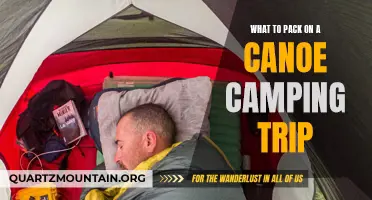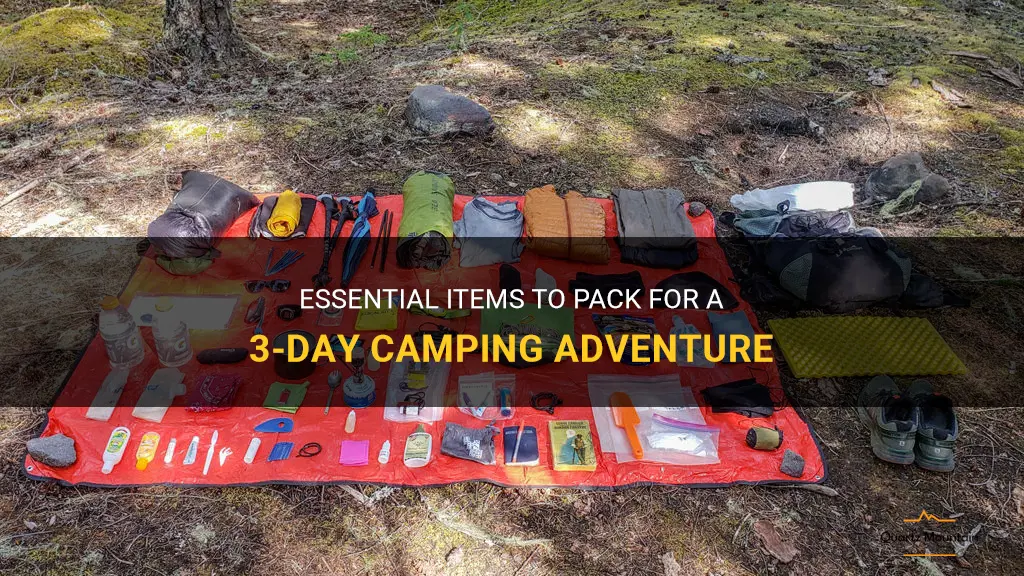
Are you planning a thrilling 3-day camping adventure? Well, before you hit the great outdoors, make sure you have packed all the essential items that can help you enjoy a comfortable and memorable camping experience. From a sturdy tent and cozy sleeping bag to cooking utensils and navigation tools, this guide will walk you through the must-have items for your upcoming camping trip. So, fasten your backpacks and get ready to make the most out of your 3-day camping adventure!
What You'll Learn
- What are the essential items to pack for a 3-day camping trip?
- Are there any specific clothing items or gear that should be included in my camping packing list?
- Should I bring my own cookware and utensils for cooking meals while camping?
- Are there any additional items or amenities that would enhance my camping experience?
- What safety precautions should I take when packing for a camping trip, such as bringing a first aid kit or extra emergency supplies?

What are the essential items to pack for a 3-day camping trip?
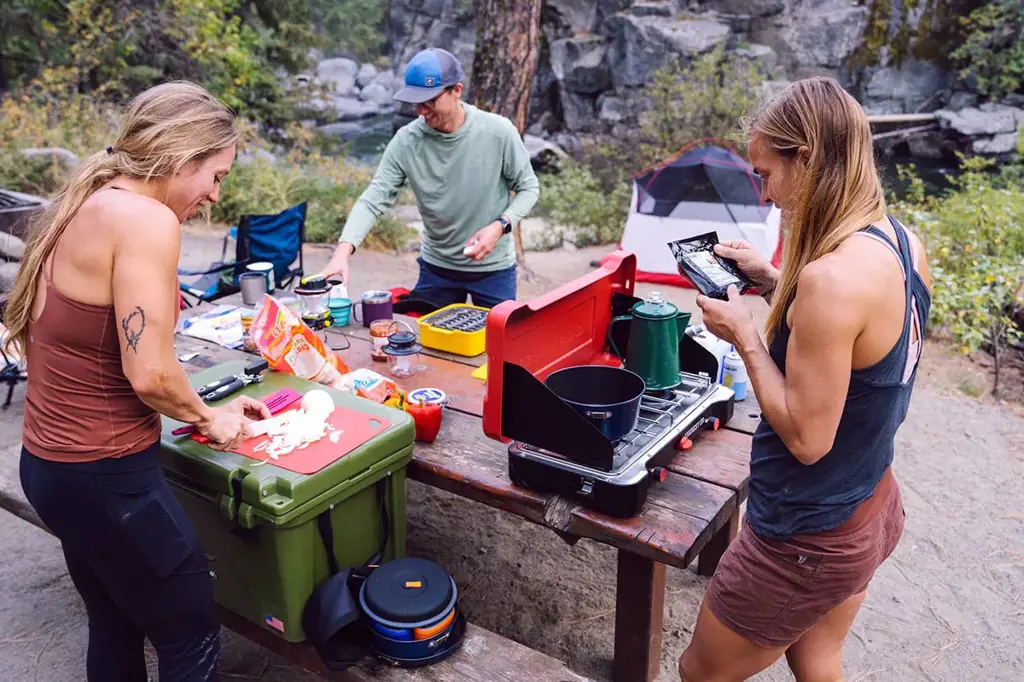
When planning for a 3-day camping trip, it is important to pack essential items that will ensure a comfortable and enjoyable experience in the great outdoors. Whether you are a seasoned camper or new to the camping scene, here are some key items that should be on your packing list:
- Tent: A good quality tent is essential for providing shelter from the elements. Choose a tent that suits the number of people in your group and offers enough space for everyone to sleep comfortably. Look for a tent that is easy to set up and durable enough to withstand different weather conditions.
- Sleeping Bag and Sleeping Pad: A warm and cozy sleeping bag is crucial for a good night's sleep. Choose a sleeping bag that is appropriate for the expected temperature range during your trip. Additionally, invest in a sleeping pad or air mattress to provide cushioning and insulation from the cold ground.
- Clothing: Pack enough clothing for the duration of your trip, taking into consideration the weather and activities you plan to engage in. It is important to pack layers that can be easily added or removed to accommodate changing temperatures. Include items such as hiking boots, rain gear, extra socks, and a hat to protect yourself from sunburn.
- Cooking Supplies: If you plan to cook your own meals during the camping trip, pack a portable stove or grill, along with pots, pans, utensils, and a cooler to store perishable food items. Don't forget to bring basic seasonings, oil, and condiments. Also, consider packing a camping coffee maker or percolator for your caffeine fix in the morning.
- Food and Water: Bring enough food to sustain yourself for the duration of the trip. Opt for non-perishable items such as canned goods, dried fruits, nuts, and energy bars. It is also important to pack enough drinking water or a water filtration system to ensure access to clean and safe water.
- Lighting: A reliable light source is essential for nighttime activities and navigating around the campsite. Pack a flashlight or headlamp with extra batteries. Consider bringing additional lighting options such as lanterns or string lights for a cozy atmosphere.
- First Aid Kit: Accidents can happen even in the great outdoors. Pack a well-stocked first aid kit that includes essential items such as bandages, antiseptic ointment, pain relievers, and any necessary medications specific to your needs. It is also a good idea to carry a basic survival kit that includes a map, compass, whistle, and fire-starting tools.
- Personal Hygiene Items: Don't forget to pack essential personal hygiene items such as toilet paper, soap, toothbrush, toothpaste, and hand sanitizer. Consider packing biodegradable versions of these items to minimize environmental impact.
- Entertainment: While camping is an opportunity to disconnect from technology, it's still a good idea to bring some form of entertainment. Consider packing a deck of cards, a book, a musical instrument, or any other activity that you enjoy.
- Insect Repellent and Sunscreen: Protect yourself from bugs and harmful UV rays by packing insect repellent and sunscreen. Look for products with a high SPF rating and follow the instructions for proper application and reapplication.
By packing these essential items for a 3-day camping trip, you can ensure a more comfortable and enjoyable experience in the great outdoors. Remember to plan ahead, check the weather forecast, and pack accordingly to maximize your camping adventure.
Essential Packing Guide for Contiki Europe Tours in Spring
You may want to see also

Are there any specific clothing items or gear that should be included in my camping packing list?
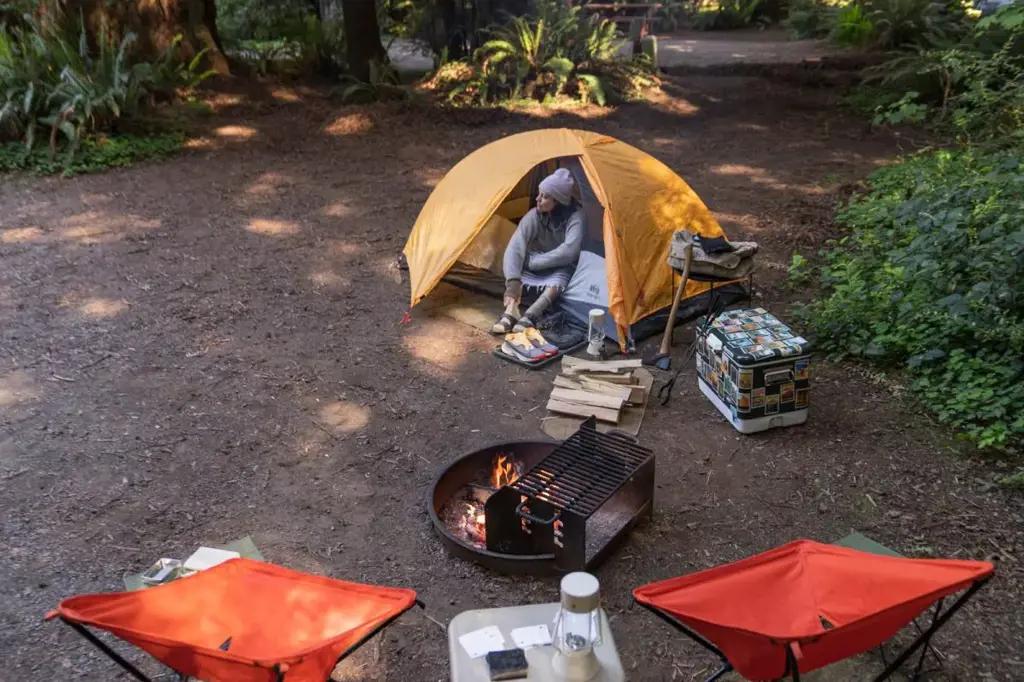
When it comes to packing for a camping trip, it's important to be prepared for all types of weather and outdoor activities. There are several clothing items and gear that should be included in your camping packing list to ensure a comfortable and enjoyable experience.
- Layered clothing: It's essential to bring clothing that can be layered for varying temperatures. This includes long-sleeved shirts, hoodies or sweaters, and a waterproof and windproof jacket. Layering allows you to adjust to the changing weather conditions and will keep you warm during cooler nights.
- Waterproof boots: Investing in a good pair of waterproof boots is crucial for camping trips. They will keep your feet dry and protected from wet terrain, especially if you plan on hiking or walking through puddles and streams. Look for boots with good traction to prevent slipping on slippery surfaces.
- Hiking socks: Along with waterproof boots, it's important to bring hiking socks that are moisture-wicking and provide cushioning. These socks will help prevent blisters and keep your feet comfortable during long hikes. It's also a good idea to pack an extra pair of socks in case they get wet.
- Quick-dry clothing: Pack clothing items made from quick-dry materials such as nylon or polyester. These fabrics are lightweight, breathable, and dry quickly when wet. They are especially useful if you plan on participating in water activities like kayaking or swimming.
- Sun protection gear: Protecting yourself from the sun is crucial during outdoor activities. Don't forget to pack a wide-brimmed hat, sunglasses, and sunscreen with a high SPF. These items will help shield your face and eyes from the sun's harmful rays.
- Camping essentials: In addition to clothing, there are a few gear items that are essential for any camping trip. This includes a sturdy camping tent, sleeping bag, camping stove, and cooking utensils. It's also advisable to pack a camping chair and a cooler to keep your food and beverages fresh.
- Emergency gear: Safety should always be a priority when camping. Pack a first aid kit with essentials like band-aids, antiseptic ointment, and pain relievers. It's also a good idea to bring a flashlight, whistle, and a multi-tool for emergencies.
- Bug repellent: Depending on the location and time of year, bugs can be a nuisance during camping trips. Be sure to pack bug repellent to protect yourself from mosquitos, ticks, and other insects. You may also want to bring a bug net for your tent to keep bugs out while you sleep.
- Waterproof bags: To keep your belongings dry, it's a good idea to pack waterproof bags or dry sacks. These will come in handy for storing clothes, electronics, and other items that are sensitive to water. They are also useful for separating wet and dirty items from clean ones.
- Extra essentials: Don't forget to pack extra essentials like a reusable water bottle, extra batteries, a map of the area, and a compass. These items will ensure you stay hydrated, have a source of light, and can navigate your surroundings.
In summary, when packing for a camping trip, it's important to consider the weather, activities, and safety precautions. Layered clothing, waterproof boots, hiking socks, and quick-dry materials are important for staying comfortable in varying conditions. Sun protection gear, camping essentials, emergency gear, bug repellent, and waterproof bags are also essential for a successful camping trip. Lastly, don't forget extra essentials like a water bottle, batteries, a map, and a compass. By packing these items, you'll be well-prepared for your camping adventure.
What to Pack for a Late August British Isles Cruise
You may want to see also

Should I bring my own cookware and utensils for cooking meals while camping?
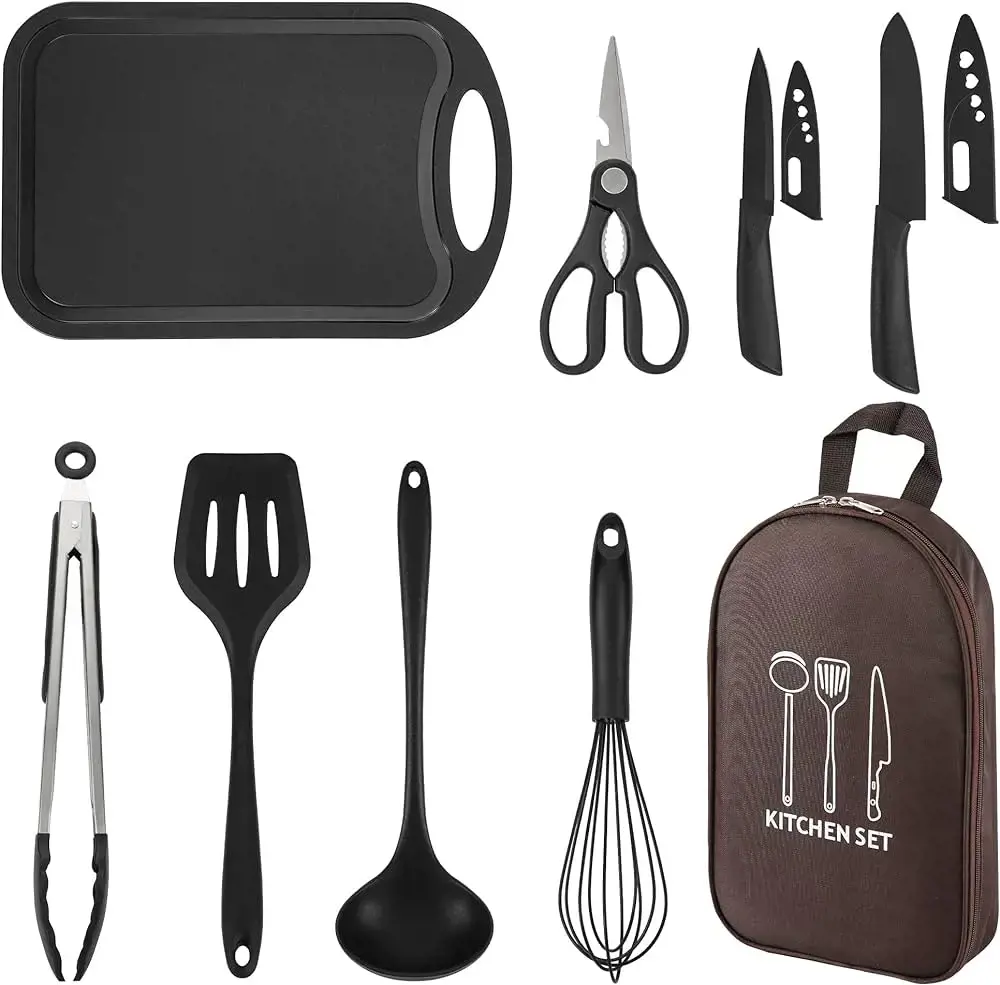
When it comes to cooking meals while camping, one question that often arises is whether or not you should bring your own cookware and utensils. There are several factors to consider when making this decision, including the availability and quality of the campsite's cooking facilities, the types of meals you plan to cook, and your personal preferences and camping experience.
First and foremost, it is important to assess the cooking facilities at your campsite. Some campsites provide fully equipped kitchens with stoves, ovens, and a variety of cookware and utensils. In these cases, bringing your own cookware may be unnecessary, as you can utilize the available facilities. However, if the cooking facilities are limited or in poor condition, bringing your own cookware can ensure that you have everything you need to prepare your meals comfortably and efficiently.
The next consideration is the type of meals you plan to cook while camping. If you are planning on preparing simple meals that require minimal cookware, such as one-pot dishes or meals that can be cooked over a campfire, you may not need to bring your own cookware. However, if you have a more ambitious menu in mind, with multiple courses or dishes that require specific cookware, bringing your own set can make your cooking experience much more enjoyable.
Personal preferences and camping experience also play a role in the decision. If you are an experienced camper who enjoys cooking meals from scratch and has specific preferences when it comes to cookware and utensils, bringing your own set may be the best option. This way, you can ensure that you have all the tools you need and are comfortable using them. On the other hand, if you are new to camping or prefer to keep things simple, using the campsite's cookware and utensils may be sufficient.
In terms of what to bring, it is recommended to pack a basic set of cookware and utensils that can handle a variety of cooking methods. This may include a pot, a frying pan, a spatula, a knife, and a cutting board. Additionally, consider packing a few essential kitchen tools such as a can opener, a grater, and a pair of tongs. These items are versatile and can be used for a wide range of meals.
Bringing your own cookware and utensils for cooking meals while camping can provide you with a sense of familiarity and comfort, as well as ensure that you have everything you need to prepare your desired meals. However, it is important to assess the campsite's cooking facilities, the types of meals you plan to cook, and your personal preferences and camping experience before making a decision. By considering these factors, you can make an informed choice that will enhance your camping and cooking experience.
Essential Items to Pack First for Your Next Trip
You may want to see also

Are there any additional items or amenities that would enhance my camping experience?
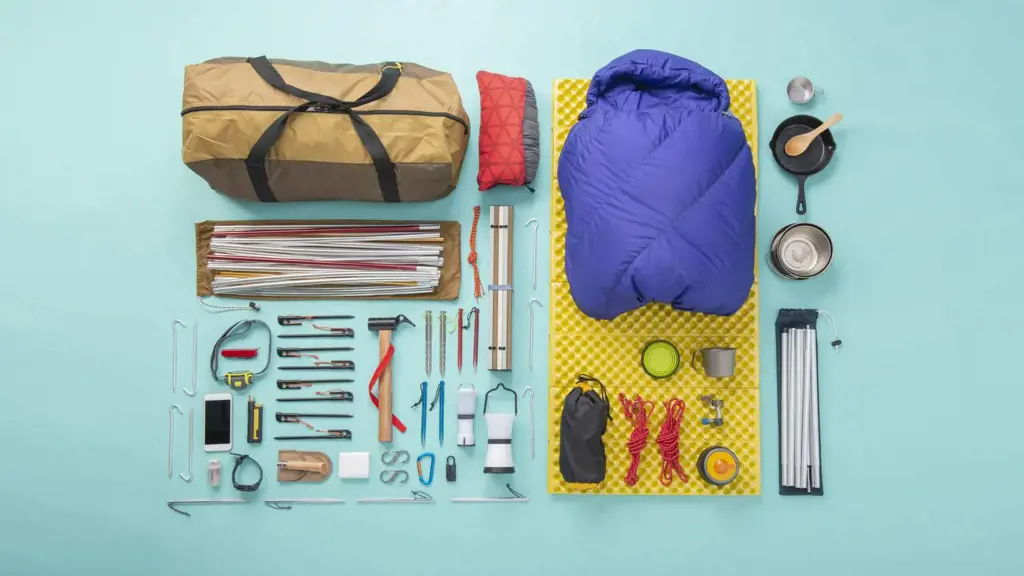
Camping is a great way to connect with nature and take a break from the chaos of everyday life. Whether you are a seasoned camper or a first-timer, there are several additional items and amenities that can enhance your camping experience. These items can make your time in the great outdoors more comfortable, convenient, and enjoyable. In this article, we will discuss some of these items and amenities.
- Campsite essentials: Before we dive into the additional items, it's important to ensure you have the basic campsite essentials. These include a tent, sleeping bag, sleeping pad, and cooking equipment. These items are essential for any camping trip and should be prioritized before considering any additional items.
- Portable camping chairs and table: Having portable camping chairs and a table can significantly enhance your camping experience. These items provide a comfortable seating and dining area, allowing you to relax and enjoy your meals outdoors without having to sit on the ground. They are lightweight and foldable, making them easy to transport and set up.
- Camping hammock: A camping hammock is a wonderful addition to any camping trip. It provides a comfortable place to relax and unwind, allowing you to sway gently with the breeze. Hammocks can be easily set up between trees or using hammock stands, and they are lightweight, making them ideal for backpacking trips.
- Portable power source: In today's digital age, many people rely on electronic devices even when they are camping. Having a portable power source, such as a power bank or a solar charger, can be incredibly useful. It allows you to charge your phone, camera, or other devices, ensuring you stay connected or capture beautiful moments during your camping trip.
- Portable camping shower: If you are planning to camp for an extended period or are camping in remote areas without easy access to showers, a portable camping shower can be a game-changer. These showers are designed to be lightweight and easy to set up. They run on solar power, propane, or a manual pump, providing you with a refreshing shower during your camping trip.
- Portable camping stove: While cooking equipment is a basic campsite essential, having a portable camping stove can expand your cooking options. With a camping stove, you can cook more complex meals and enjoy hot food even in remote areas. Portable camping stoves come in various sizes and fuel options, allowing you to choose the one that best suits your needs.
- Campfire cooking accessories: Cooking over a campfire can be a fun and delicious experience. Consider investing in campfire cooking accessories, such as a grill grate, cast iron skillet, or a Dutch oven. These accessories open up a whole new world of outdoor cooking possibilities and allow you to create tasty meals over an open flame.
- Camping lantern or headlamp: Lighting is essential when camping, especially during the nighttime. A camping lantern or a headlamp can provide the necessary illumination for cooking, reading, or navigating around the campsite. They are lightweight, durable, and often come with adjustable brightness settings.
In conclusion, there are several additional items and amenities that can enhance your camping experience. From portable camping chairs and hammocks to portable power sources and camping showers, these items can make your time in the great outdoors more comfortable, convenient, and enjoyable. Consider adding some of these items to your camping gear to enhance your next camping trip.
The Ultimate Guide to Packing for a Cruise: Tips and Tricks from YouTube Experts
You may want to see also

What safety precautions should I take when packing for a camping trip, such as bringing a first aid kit or extra emergency supplies?
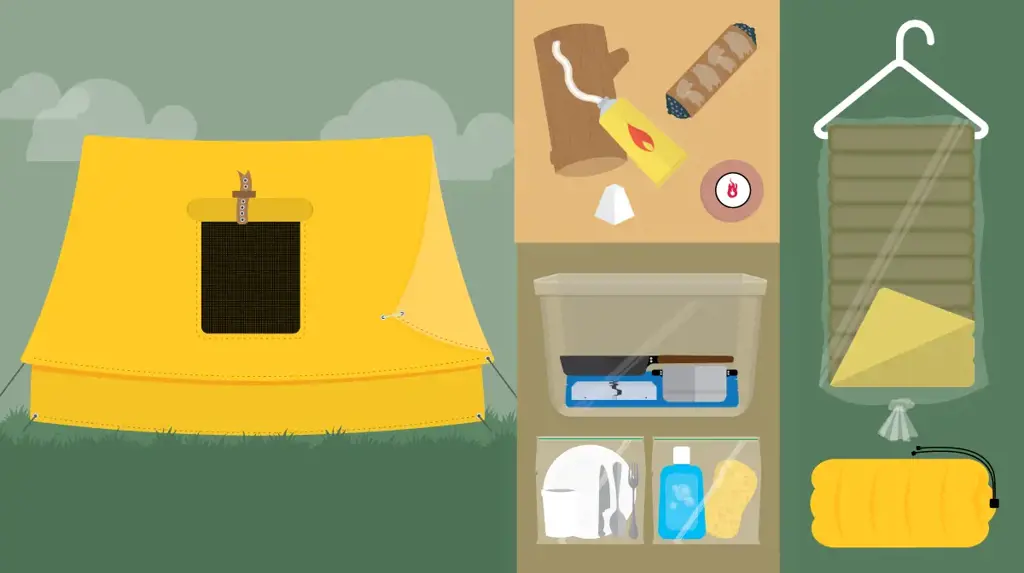
When packing for a camping trip, it is important to take safety precautions to ensure that you are well-prepared for any emergencies that may arise. One of the most important things to pack is a first aid kit. This kit should be well-stocked with supplies such as bandages, disinfectant, painkillers, and any necessary prescription medications.
In addition to a first aid kit, it is also a good idea to bring extra emergency supplies. This could include items such as a flashlight, a whistle, and a fire starter. These items can be critical in a survival situation and can be easily packed in a small bag or backpack.
Another important safety precaution to take when packing for a camping trip is to bring a sufficient amount of water. Dehydration can be a serious issue, especially if you are camping in a remote or hot area. It is recommended to bring at least one gallon of water per person per day, and to have additional water sources or purification methods in case your supply runs out.
In addition to water, it is also important to pack enough food for the duration of your trip. This should include non-perishable items that are easy to prepare, such as canned goods or freeze-dried meals. It is also a good idea to bring some extra food in case of an emergency or unforeseen circumstances.
When it comes to shelter, it is important to pack a tent that is suitable for the environment you will be camping in. A good tent should be waterproof, sturdy, and able to withstand the elements. It is also a good idea to bring extra stakes and a tarp to provide additional protection from the rain or wind.
In terms of clothing, it is important to pack appropriate attire for the weather conditions you will be facing. This could include warm layers for cold weather, lightweight and breathable clothing for hot weather, and waterproof clothing for rainy conditions. It is also important to bring extra socks and shoes in case your feet get wet or blistered.
When packing for a camping trip, it is also important to consider any specific safety precautions that may be necessary for the area you will be camping in. This could include bringing bear spray or bear-resistant food storage containers if you are camping in an area with a high bear population, or bringing mosquito repellent if you are camping in an area with a high mosquito population.
Lastly, it is important to inform someone of your camping plans and expected return date. This can be a family member, friend, or park ranger. Providing this information ensures that someone is aware of your whereabouts and can contact authorities if you do not return as planned.
Overall, taking safety precautions when packing for a camping trip is essential for the well-being and security of yourself and your camping companions. By packing a first aid kit, extra emergency supplies, sufficient water and food, appropriate shelter and clothing, and by informing someone of your plans, you can help ensure a safe and enjoyable camping experience.
Essential Items to Pack for a November Trip to Colorado
You may want to see also
Frequently asked questions
It's important to pack clothing that is suitable for the weather conditions during your camping trip. This can include lightweight and breathable clothing for warm weather, as well as layers and insulated jackets for cooler temperatures. Don't forget to pack extra socks and comfortable walking shoes or boots.
When it comes to cooking and eating during your camping trip, it's essential to pack a camping stove or grill, as well as pots, pans, and utensils. Don't forget to bring a cooler with perishable food items, as well as non-perishable snacks, such as granola bars or trail mix. Be sure to also pack cleaning supplies, like dish soap and a sponge, for easy clean-up.
For a 3-day camping trip, it's important to pack a durable tent, sleeping bags or pads, and camping chairs. Other essential camping gear includes a lantern or flashlight, a camping stove or grill for cooking, a first aid kit, and insect repellent. It's also a good idea to bring a portable camping toilet or toilet paper, as well as a camping shovel for waste disposal.
It's crucial to bring enough water to stay hydrated during your camping trip, especially if there are no water sources available at your campsite. A general guideline is to pack at least one gallon of water per person per day, but consider factors such as temperature and physical activity level. Don't forget to bring reusable water bottles for each person to refill throughout the day.
In addition to the basic camping essentials, there are a few additional items you may want to consider packing. These include a camping hammock for relaxation, a portable camping shower for cleanliness, sunscreen for sun protection, and a camping pillow for added comfort while sleeping. It's also a good idea to bring a map or compass and a whistle in case of emergencies.




